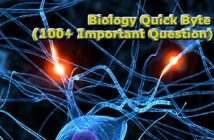Friends, below are the list of important MCQs of Punjab State Teacher Eligibility Test  (PSTET) – Child Development and Pedagogy
- Child Development (Primary School Child)
- Concept of Inclusive education and understanding children with special needs
- Learning and Pedagogy.
Request – If you get any answer wrong. please let us know, we will correct it
Practice Set – 1 | Practice Set – 2 | Practice Set – 3 | Practice Set – 4 | Practice Set -5 | Practice Set – 6
Q-1 The best method of checking student’s homework is
a) To assign it to intelligent students of the class
b) To check the answers in the class in group manner
c) To check them with the help of specimen answer
d) To check by the teacher himself in a regular way
Q-2. Who is regarded as the first teacher of a child?
a) Headmaster
b) Class-Teacher
c) Mother
d) Tutor
Q-3 The most important quality of an effective teacher is
a) Deep knowledge about the subject taught
b) A strict disciplinarian
c) Good rapport with the students
d) A good motivator
Q-4 A girl student shows talent and interest in science but her parents are pushing her to take humanities stream. What advice would you suggest to the girl?
a) To listen to her parents
b) To be focused on her favorite subjects
c) Talk to her parents and point out her talent
d) Encourage her to try for scholarships; so that she can study the subject of her interest
Q-5. How a “Teacher” should behave with the students?
a) Father Like
b) Friend Like
c) General
d) Elder Like
Q-6. Teaching-Learning process fundamentally completed in
a) Class-room
b) School
c) Society
d) Home
Q-7. Smallest unit of meaning in a language is
a) Syntax
b) Morpheme
c) Pragmatics
d) Phoneme
Q-8. A child of 16 years scores 75 in an IQ test; his mental age will be ________ years.
a) 12
b) 8
c) 14
d) 15
Q-9 Gifted students are
a) non-assertive of their needs
b) independent in their judgments
c) independent of teachers
d) introvert in nature
Q-10 Which one of the following is an example of a fine motor skill?
a) Climbing
b) Hopping
c) Running
d) Writing
Q-11 In order to instill a positive environment in a primary class a teacher should
a) wish each child in the morning
b) narrate stories with positive endings
c) allow them to make groups on their own on the basis of sociometry during group activities.
d) not discriminate and set the same goal for every child
Q-12 Most psychologists believe that development is due
a) Largely to nature.
b) Largely to nurture.
c) To nature and nurture acting separately.
d) To an interaction of nature and nurture.
Q-13 A normal child of twelve years of age is most likely to
a) Have difficulty with gross motor coordination
b) Have feelings of anxiety about pleasing adults
c) Confine his/her interests to here and now
d) Be eager for peer approval
Q-14 The reason why students run from school is
a) Lack of interesting class teaching work
b) Lack of interest in studies on the part of students
c) Not giving punishment to students
d) Callous attitude of teachers towards the problem
Q-15 If some students are not in a mood to study in the class, you will
a) Force them to study
b) Tell those students to leave the class and enjoy
c) Warn them that they must study else you will report the matter to the Principal
d) Tell them some interesting things related to their interests or your own subject
Q-16 Organismic theories of development hold that
a) Psychological structures and processes within the child help determine his/her development.
b) Physical structures and processes within the child help determine his/her development.
c) Passively developed structures and processes within the child help determine his/her development.
d) Slowly developed structures and processes within the child help determine his/her development.
Q-17 The current movement of behavior modification, wherein tokens are awarded for correct responses, is
a reflection of:
a) Herbart?s Five Steps
b) Lock?s Tabula rasa
c) Thorndike’s Law of Effect
d) Thorndike’s Law of Exercise
Q-18 The success of integrated education depends on
a) The support of community
b) The excellence of text-books
c) The highest quality of teaching-learning material
d) The attitudinal changes in teachers
Q-19 Non-verbal test of intelligence is suitable for.
a) Deaf and dumb
b) Literates
c) Backward children
d) All of these
Q-20 is the capacity to acquire and apply knowledge.
a) Personality
b) Intelligence
c) Aptitude
d) Attitude
Q-21 Intelligence testing is useful for knowing.
a) Individual difference
b) Mental retardation
c) Educational backwardness
d) All of these
Q-22 Who is the father of “Theory of Multiple Intelligence”?
a) Gardner
b) Vygotsky
c) Bruner
d) Piaget
Q-23 How the students should be motivated to get success in life ?
a) Selected study
b) Incidental study
c) Intensive study
d) Learning by recitation
Q-24 Child development is defined as a field of study that
a) Examines change in human abilities.
b) Seeks to explain behavior across the life span.
c) Compares children to adults to senior citizens.
d) Accounts for the gradual evolution of the child’s cognitive, social, and other capacities.
Q-25 The in-service teacher’ training can be made more effective by:
a) Using training package which in well prepared in advance
b) Making it a residential programme
c) Using co-operative approach
d) Practising training followup procedures
Q-26 Which of the following is not a characteristic feature of intrinsically motivated children?
a) They always succeed
b) They enjoy doing their work
c) They display a high level of energy while working
d) They like challenging tasks
Q-27 Learners should not be encouraged to
a) ask as many questions as possible both inside and outside the class
b) actively interact with other learners in group work
c) participate in as many co-curricular activities as possible
d) memorize all the answers to questions which the teacher may ask
Q-28 A Person believes that nurture strongly influences the development of his child) He would not agree with the importance of:
a) Genetic factors.
b) Exposure to peers.
c) The types of toys at home.
d) The warmth displayed by the parents.
Q-29 A student in your class has consistently been performing poorly in one subject. What should you do?
a) Tell the student to work harder
b) Arrange for a diagnostic test to find out what the difficulty is
c) Arrange for remedial classes in that subject
d) Talk to the parents
Q-30 Single factor theory of intelligence was given by.
a) Alfred Binet
b) Thorndike
c) Freeman
d) None of them
Q-31 All of the following can be signs that a child is gifted, except
a) Early development of a sense of time
b) Interest in encyclopedias and dictionaries
c) Uneasy relationships with peers.
d) Easy retention of facts
Q-32 The normal twelve year old child is most likely to:
a) Have difficulty with gross motor coordination
b) Have anxiety feelings about pleasing adults
c) Confine his/her interests to the here and now
d) Be eager for peer approval
Q-33 You find a student to be intelligent. You will
a) Remain pleased with him
b) Not give him additional homework
c) Motivate him so that he can make more progress
d) Inform his parents about the fact that he is intelligent
Q-34 Which of the following is not a sign of reading difficulty among young learners? Difficulty in
a) letter and word recognition
b) reading speed and fluency
c) understanding words and ideas
d) spelling consistency
Q-35 You find a student to be intelligent. You will
a) Remain pleased with him
b) Not give him additional homework
c) Motivate him so that he can make more progress
d) Inform his parents about the fact that he is intelligent
Q-36 The term ‘identical elements’ is closely associated with:
a) Group instruction
b) Transfer of learning
c) Jealousy between twins
d) Similar test questions
Q-37 Primary education helps ………………
a) Socialization of child
b) Democratization of child
c) In course understanding
d) All of the above
Q-38 “Child growth as proceeding through an organized sequence of stages divided roughly by age” in view of ……
a) Kohlberg
b) Piaget
c) Vygotsky
d) Skinner
Q-39 The development that proceeds from the centre to the periphery is termed as:
a) Spiral development
b) Linear development
c) Proximo-distal
d) None of the above
Q-40 All of the following advanced pronciples of child development that are closely allied to the stimulus response learning theory, except:
a) Pavilov
b) J.b) Waston
c) Hull
d) Gesell
Q-41 A major strength of ecological theory is its framework for explaining:
a) Environment influences on development
b) Biological influences on development
c) Congentive development
d) Affective processes in development
Q-42 A Person believes that nurture strongly influences the development of his child) He would not agree with the importance of:
a) Genetic factors.
b) Exposure to peers.
c) The types of toys at home.
d) The warmth displayed by the parents.
Q-43 How will you bring a hyperactive child on the right path?
a) Make him sit in front of the class and keep a strict vigil on him
b) Allocate a seat for him in a corner of the class
c) Give him tasks of watering trees, cleaning the blackboard, making toys of clay etc)Â
d) None of above
Q-44 The current view of childhood assumes that
a) Children are similar to adults in most ways.
b) Children are best treated as young adults.
c) Childhood is basically a “waiting period) ”
d) Childhood is a unique period of growth and change.
Q-45 Most important work of teacher is:
a) to organize teaching work
b) to deliver lecture in class
c) to take care of children
d) to evaluate the students
Q-46 A teacher should be:
a) Honest
b) Diligent
c) Dutiful
d) Punctual
Q-47 A teacher can make problem-solving fun for students by doing all the following except
a) providing open ended material
b) giving time for free play
c) providing endless opportunities for creative thinking
d) expecting perfection from the students while they are trying to do things by themselves.Â
Q-48 In preparing a fifth grade class to take a standardized reading test the teacher is best advised to:
a) Tell the children the test is very important and they should do the best they can
b) Ditto key questions from a previous test and allow the pupils to answer them
c) Coach the below grade level readers, as the rest of the class will do well anyway
d) Give the pupils practice in answering questions similar to the type that will appear on the test
Q-49 Child development is defined as a field of study that
a) Examines change in human abilities.
b) Seeks to explain behavior across the life span.
c) Compares children to adults to senior citizens.
d) Accounts for the gradual evolution of the child’s cognitive, social, and other capacities
Q-50 Questioning in the class-room
a) Clarifies the subject-matter
b) Develops inactivity
c) Is a wastage of time
d) Creates indiscipline
Request – If you get any answer wrong. please let us know, we will correct it
Practice Set – 1 | Practice Set – 2 | Practice Set – 3 | Practice Set – 4 | Practice Set -5 | Practice Set – 6




12 Comments
please recheck question no.45 & 46
please recheck question no.11
Ans corrected to option d
Right answer of question no.45 is A and question no.46 is C
thanks
Q22 father of theory of multiple intelligence
right ans is THORNDIKE
Q30 single factor theory of intelligence
JOHNSAN & STRAN
THORNDIKE is ………multiple factor theory
plz check the Q22 father of theory of multiple intelligence
nd
Q30 single factor theory of intelligence